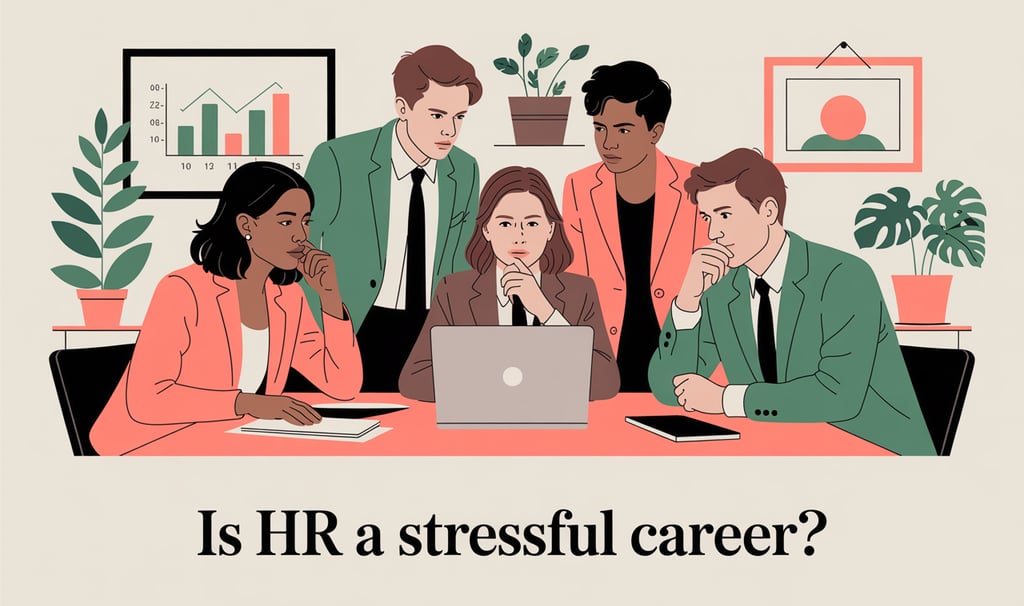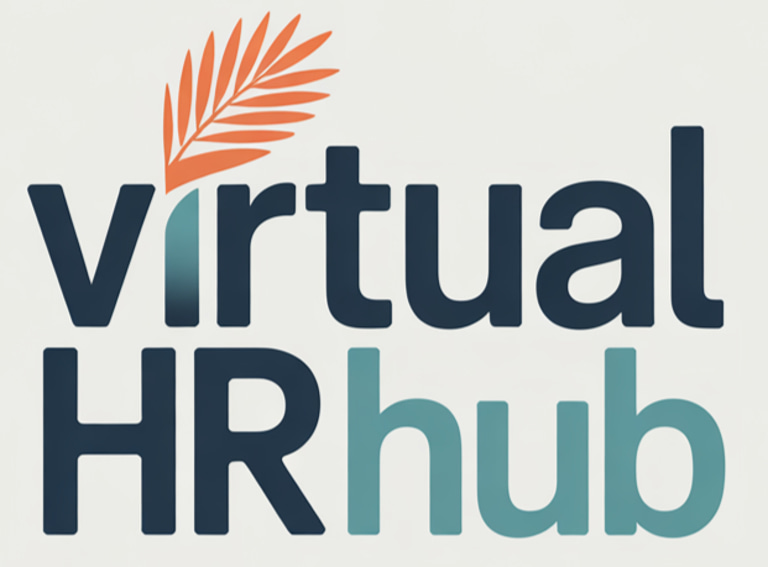Is HR a Stressful Job? Insider Insights, Challenges, and Rewards
Wondering “is HR a stressful job?” Discover the truth from an HR professional with a Bachelor in Management, SHRM-CP, and CPHR. Learn about salaries, growth, stress factors, legal compliance, technology, and why HR can be both challenging and rewarding.
HR
Jeremy Golan
9/29/20254 min read


Is HR a Stressful Job? Insider Insights and Real-Life Experiences
Imagine walking into an office on a Monday morning. Coffee is hot, the team is bustling, and emails are already piling up. Among the chaos sits the Human Resources professional—smiling, calm, approachable… yet silently bracing for the storms ahead. If you’ve ever wondered, “is HR a stressful job?”, you’re about to get a real insider perspective.
I know firsthand—I hold a Bachelor of Management in Human Resources, along with SHRM-CP and CPHR certifications. I’ve spent years navigating the unpredictable world of HR. Some of my colleagues came through traditional HR programs like I did, while others transitioned from social work, psychology, or business administration. The diversity of backgrounds in HR is one of its strengths—but it can also make the work environment more complex.
Why HR Is an Attractive Career
HR has strong growth potential and competitive salaries. According to the U.S. Bureau of Labor Statistics:
Average HR salary: $65,000–$85,000 annually; senior roles often exceed $100,000.
Job growth: 7% projected growth from 2022–2032, faster than the average occupation.
Job openings: Thousands of new positions each year.
On paper, HR seems ideal: engaging with people, shaping company culture, recruiting top talent, and being a key decision-maker. But the reality is more nuanced.
The People Factor: Managing Personalities
One of the main stressors in HR is simple: you work with people, and not just a few—dozens, hundreds, even thousands. Every employee has a different personality, perspective, and set of expectations. Not everyone gets along. Managers clash with teams. Employees misunderstand each other. Your role is to bridge these gaps, find solutions, and maintain harmony.
Take talent acquisition. You might sift through thousands of resumes looking for a single “unicorn” candidate—a needle in a haystack. ATS and AI tools help, but smart candidates often tailor their resumes to bypass the system, creating extra stress for HR professionals. You must discern genuine talent from those trying to game the algorithm.
The Emotional Toll: Delivering Bad News
No matter how prepared you are, firing or laying off employees is nerve-wracking. Balancing empathy with legal compliance is a constant challenge. Every decision carries consequences, and mistakes can put both the employee and the company at risk.
Performance feedback is another tightrope. Do you give honest, constructive criticism, or protect the company’s interests above all? Every choice is consequential, making HR a high-pressure role.
Legal Compliance and Risk Management
HR is heavily regulated. Professionals must know FLSA, ADA, OSHA, and other employment laws. You enforce rules, protect workers, and sometimes investigate complaints—some minor, some serious, even criminal.
You also must maintain impartiality. HR must balance being approachable with remaining authoritative, so decisions are fair and defensible. Your judgment can make or break an employee’s experience, as well as protect the company legally.
Technology and Continuous Learning
Modern HR is highly technical. Platforms like Workday, BambooHR, Zoho, and other SaaS solutions are standard. Employers expect HR professionals to know these systems from day one.
Certifications like SHRM-CP or CPHR open doors, but they require significant preparation: 3+ hour exams, continuing education, and recertification every three years. For many, this means sacrificing personal hobbies or downtime to remain competitive.
Financial Acumen and Strategic Thinking
HR is not just about people—it’s about numbers too. Budgeting, payroll projections, compensation planning, and benefits negotiation require strong analytical skills.
Building networks with benefits providers, negotiating contracts, and ensuring financial compliance is part of the job. Some professionals find this engaging; others find it daunting. HR is about combining strategic thinking with operational execution.
Navigating Office Rumors and Investigations
Rumors are inevitable in any workplace. Some are harmless; others require careful investigation. Missteps can lead to disciplinary action, legal challenges, or even criminal implications. HR must remain discreet, analytical, and fair, often while balancing relationships with employees and management.
In sensitive situations, having another HR representative present can help protect everyone and reduce liability. Every word matters—especially in an age where conversations can be recorded or misused.
Detail-Oriented Responsibilities
HR requires extreme attention to detail. Employment contracts, policy manuals, and benefits documentation must be precise. Small mistakes can become major legal or financial liabilities, adding pressure to an already complex role.
The field demands organization, focus, and vigilance, whether reviewing contracts or ensuring regulatory compliance.
Gender Dynamics and Social Awareness
HR is predominantly female, with about 30% male professionals. Gender dynamics, office politics, and social expectations can add another layer of complexity. HR professionals must navigate interpersonal subtleties while remaining impartial, a task that can be exhausting at times.
Balancing being part of the team with being a trusted authority figure is key. You’re expected to smile, guide, and support, all while enforcing rules fairly.
Is HR Stressful? It Depends on You
Ultimately, the question “is HR a stressful job?” depends on your personality and strengths:
If you enjoy problem-solving, multitasking, and conflict resolution, HR can be highly rewarding.
If you prefer predictable routines and minimal confrontation, the role may feel overwhelming.
HR rewards resilience, emotional intelligence, and adaptability, while challenging you to grow in ways few other careers do.
The Rewarding Side of HR
Despite the challenges, HR offers immense personal and professional rewards. You witness employee growth, launch careers, and shape workplace culture. You build networks, negotiate meaningful benefits, and impact organizational success.
Every difficult conversation, compliance investigation, and strategy session contributes to a larger purpose: creating a thriving, legally compliant, and engaged workforce.
Conclusion
Yes, HR can be stressful. You manage people, legal requirements, technology, budgets, and corporate policies daily. You make high-stakes decisions that affect both employees and the organization.
But stress isn’t inherently negative. For the right person—someone who enjoys complex problem-solving, people interaction, and strategic planning—HR is not just manageable; it’s rewarding, dynamic, and impactful.
HR isn’t merely a job. It’s a career that demands heart, intellect, and courage—and for those who embrace it, the rewards are significant.
Your total HR Solution!
We take care of the "heavy lifting" so you can soar!
Support
Certified, experienced and insured.
924 N. Magnolia Ave, Suite 202-5448
Orlando, FL 32803
© 2025. All rights reserved.
